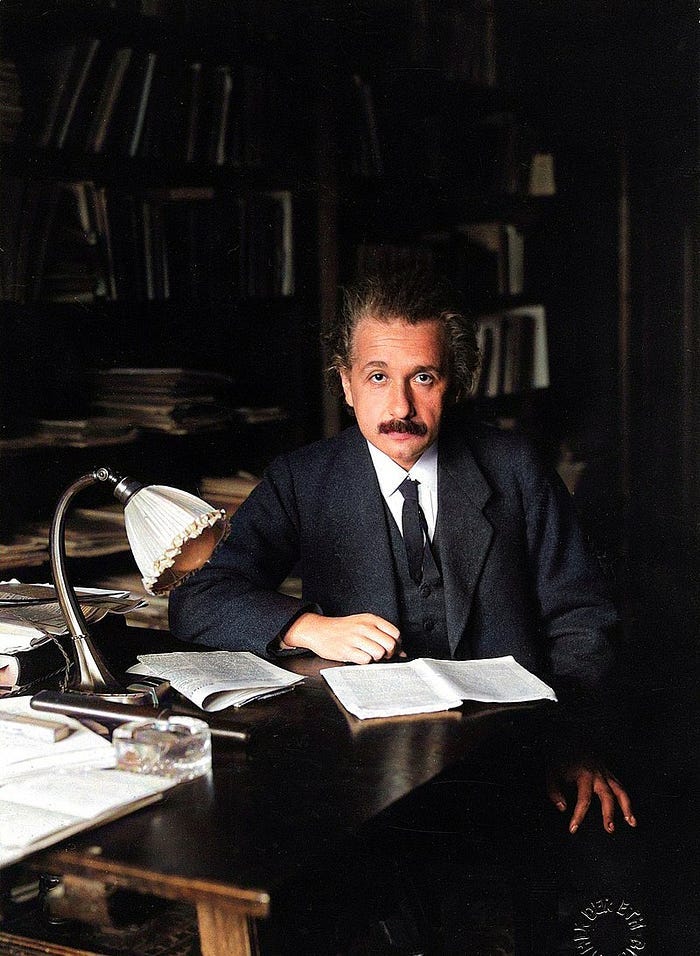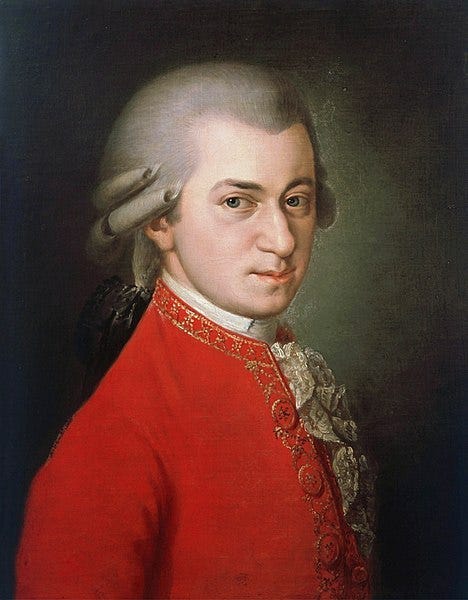What Two Researchers Learned After Years Of Studying Geniuses
A recipe for building an extraordinary mind from the ground up

What’s the best way to develop the skills to create an extraordinary mind? Well, you can say it’s a timeless question. Since humanity developed the ability to think, it’s been trying to improve that capacity.
This very question led two different researchers into their own investigation of human genius and how it comes to be.
Professor Craig Wright has spent over twenty years studying geniuses. He also teaches The Nature of Genius at Yale and is author of The Hidden Habits of Genius.
Blogger and teacher Henrik Karlsson, has examined forty-two biographies on twenty well known geniuses, delving into their childhoods in his post Childhoods of Exceptional People.
Despite having no contact with each other, both came up with a similar method of study: reverse engineer existing geniuses. Within the groups they found recurring themes. With a bit of thought, each broke these down into characteristic tools which aid in the construction of geniuses.
While both developed their own language for these elements, there’s much cross-over between the two. If you combine their work, you get an interesting picture. Call it a recipe for genius.
Oddly, extremely high IQ isn’t the driving force. Wright says once you hit above average intelligence, other factors take over, and Karlsson leans the same way. The first involves your environment.
Genius Is Created By Social Circle And Circumstance
“Humans…are intensely social animals…It is therefore not surprising that those who grow up to be exceptional tend to have spent their formative years surrounded by adults who were exceptional.”
— Henrik Karlsson, Childhoods of Exceptional People
Wright mentions the “situational advantage” of being in the proper place, at the right time can be critical for developing a genius. Bill Gates is a prime example. He wasn’t far from one of the few computer labs in the country during his adolescence and his parents were wealthy.
One could say the same for Da Vinci being in Florence during the Renaissance or Einstein growing up in the solid educational environments of Germany and Switzerland. Although Karlsson slightly differs. He sees situational advantage in the terms of adults which surround the gifted children.
Karlsson says Virginia Woolf’s father employed impressive tutors and had the likes of Henry James, Thomas Hardy, and Alfred Lord Tennyson stop by for dinner, among others. They’d often talk with Virginia, and she’d listen in on conversations, which weren’t dumbed down for a child to understand.
Michel de Montaigne’s dad hired tutors to teach him Latin as a young child. Oddly, he learned this before French. John Stuart Mill helped his father write economic treatises as a child, and casually stopped by Jeremy Bentham’s house to chit chat and borrow books.
When Bertrand Russell was five, he didn’t believe the Earth was round. So, his grandpop got the vicar of their church to explain the physics and shape of our planet by reason, not lecture.
Furthermore, Karlsson says many of the geniuses became “intellectual apprentices” to someone of “exceptional capacity” at an early age. But self-study also played a large part.
Education Helps, But Self-Education Is Critical
While Karlsson says some geniuses were homeschooled like Blaise Pascal and Woolf, it isn’t necessary. Self-study is. Or as he specifically states, “They were left to self-explore.”
He says Pascal’s father never taught him mathematics because it might be a distraction to other subjects. However, Blaise taught himself. By the time he was a teenager, the boy rederived many of Euclid’s proofs.
According to Wright, both Musk and Tesla were avid readers. The former read all the books in Pretoria’s library when he was a child, and his family used him like a human Google. But Tesla’s father discouraged reading. So, Nikola created his own candles to hide his studies while his dad slept.
The Wright Brother’s father didn’t care if they missed a few days at school, but supplied them with an excellent library which contained great works of literature. If they read or worked on “projects,” he was happy. One project was building their own printing press and starting a newspaper.
Intense curiosity often drives geniuses into this self-education. Professor Wright says this instinct powered Da Vinci to study anatomy, mathematics, art, and even flight.
That same wonder also makes learning over a wide breadth of subjects appealing. The genius twists them together in a unique way. Like Steve Jobs combined calligraphy, computers, and Zen Buddhism into Apple.
However, Karlsson says there’s one more element.
Thinking And Study As Entertainment Due To Boredom
“Immersion in boredom is also a universal in the biographies of exceptional people.”
— Henrik Karlsson, Childhoods of Exceptional People
While kids today have endless entertainment, Karlsson says many of the geniuses he studied were starved of it. Moreover, many were isolated. Whether it be intentionally, or due to illness, they usually didn’t have access to playmates.
For instance, Voltaire, Musk, Teddy Roosevelt, Tesla, John Stuart Mill, and Descartes spent their childhoods reading instead of outdoors with the neighborhood kids.
So, self-study became a way to “keep their minds occupied.”
Although for many, the child inside never died. Professor Wright says often these brilliant minds maintained a “child-like imagination” throughout their adulthood which pushed them to creative heights.
For instance, Mozart’s sister called him the “eternal child.” He also wrote an opera about a “magic flute” and had imaginary friends…at the age of thirty- five. Picasso claimed he spent his lifetime trying to paint like a child.
Einstein was also said to have a “child-like mentality,” and described his ability to think of unusual solutions such as free play with ideas or “spiele,” which means play. While Walt Disney took it a step further. He created an empire of films and theme parks based entirely on child-like fantasy.
Finally, Mary Shelley’s story-writing game to pass the time resulted in one of the most unforgettable monsters ever created.
But let’s stop here. It’s time to reevaluate everything we’ve learned so far and figure out what this recipe for genius means. Plus, what we can get out of it.
Lessons Learned From Reverse Engineering Brilliant Minds

Both researchers believe genius has less to do with sky high IQs and more to do with the environment you surround yourself with. Wright thinks situational advantage is critical, but you aren’t screwed if you don’t have it.
Seek out areas or communities which specialize in the ideas you’re interested in. However, Karlsson points to people. He believes becoming an “intellectual apprentice” to another of “exceptional capacity” can be just as important.
Both researchers see self-study as crucial. Whether you develop an endless curiosity, or just use intellectual pursuits to combat boredom, the learning you do on your own paves the way to an extraordinary mind.
Wright also notes the benefit of a child-like mind which likens deep thinking to play. This “free play with ideas” leads to breakthroughs.
Now, all this doesn’t mean you have to be as weird as Mozart, or lock yourself away like Descartes. Just follow a few parts of the recipe here and there.
Adopting a curious attitude, doing a bit of research on an interesting topic, and finding a brilliant teacher (even passively through books or the net) can be a path to improving your mind.
Although you can always go for extra credit and pick up an imaginary friend. I hear Mozart isn’t doing anything nowadays.
-Originally published on Medium 2/23/23


